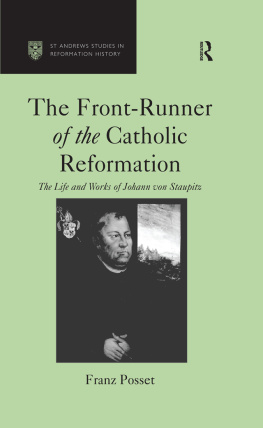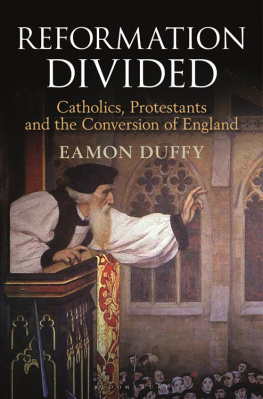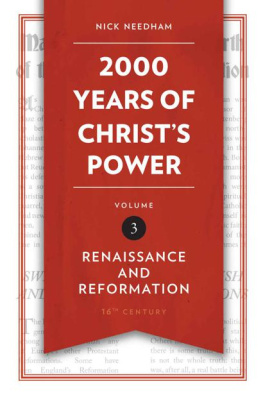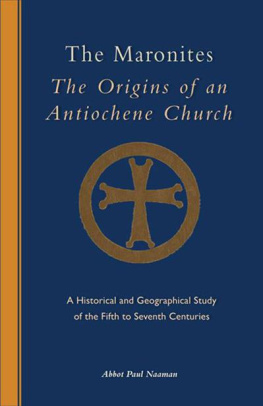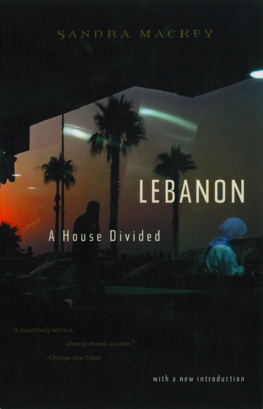Rome and the Maronites in the Renaissance and Reformation
Rome and the Maronites in the Renaissance and Reformation provides the first in-depth study of contacts between Rome and the Maronites during the fifteenth and sixteenth centuries. This book begins by showing how the church unions agreed at the Council of Ferrara-Florence (14381445) led Catholics to endow an immense amount of trust in the orthodoxy of Christians from the east. Taking the Maronites of Mount Lebanon as its focus, it then analyses how agents in the peripheries of the Catholic world struggled to preserve this trust into the early sixteenth century, when everything changed. On one hand, this study finds that suspicion of Christians in Europe generated by the Reformation soon led Catholics to doubt the past and present fidelity of the Maronites and other Christian peoples of the Middle East and Africa. On the other, it highlights how the expansion of the Ottoman Empire caused many Maronites to seek closer integration into Catholic religious and military goals in the eastern Mediterranean. By drawing on previously unstudied sources to explore both Maronite as well as Roman perspectives, this book integrates eastern Christianity into the history of the Reformation, while re-evaluating the history of contact between Rome and the Christian east in the early modern period. It is essential reading for scholars and students of early modern Europe, as well as those interested in the Reformation, religious history, and the history of Catholic Orientalism.
Sam Kennerley is Hannah Seeger Davis Postdoctoral Research Fellow at the Seeger Center for Hellenic Studies, Princeton University. He is co-editor of The Reception of the Church Fathers and Early Church Historians in the Renaissance and Reformation, c.14701650, a special issue of the International Journal of the Classical Tradition.
Routledge Studies in Renaissance and Early Modern Worlds of Knowledge
Series Editors:
Harald E. Braun (University of Liverpool, UK) and Emily Michelson (University of St Andrews, UK)
SRS Board Members:
Erik DeBom (KU Leuven, Belgium), Mordechai Feingold (California Institute of Technology, USA), Andrew Hadfield (Sussex), Peter Mack (University of Warwick, UK), Jennifer Richards (University of Newcastle, UK), Stefania Tutino (UCLA, USA), Richard Wistreich (Royal College of Music, UK).
This series explores Renaissance and Early Modern Worlds of Knowledge (c.1400c.1700) in Europe, the Americas, Asia and Africa. The volumes published in this series study the individuals, communities and networks involved in making and communicating knowledge during the first age of globalization. Authors investigate the perceptions, practices and modes of behaviour which shaped Renaissance and Early Modern intellectual endeavour and examine the ways in which they reverberated in the political, cultural, social and economic spheres.
The series is interdisciplinary, comparative and global in its outlook. We welcome submissions from new as well as existing fields of Renaissance Studies, including the history of literature (including neo-Latin, European and non-European languages), science and medicine, religion, architecture, environmental and economic history, the history of the book, art history, intellectual history and the history of music. We are particularly interested in proposals that straddle disciplines and are innovative in terms of approach and methodology.
The series includes monographs, shorter works and edited collections of essays. The Society for Renaissance Studies (http://www.rensoc.org.uk) provides an expert editorial board, mentoring, extensive editing and support for contributors to the series, ensuring high standards of peer-reviewed scholarship. We welcome proposals from early career researchers as well as more established colleagues.
21 Rome and the Maronites in the Renaissance and Reformation
The Formation of Religious Identity in the Early Modern Mediterranean
Sam Kennerley
22 Mathematics and the Craft of Thought in the Anglo-Dutch Renaissance
Eleanor Chan
For more information about this series, please visit: https://www.routledge.com/Routledge-Studies-in-Renaissance-and-Early-Modern-Worlds-of-Knowledge/book-series/ASHSER4043
Rome and the Maronites in the Renaissance and Reformation
The Formation of Religious Identity in the Early Modern Mediterranean
Sam Kennerley
First published 2022
by Routledge
2 Park Square, Milton Park, Abingdon, Oxon OX14 4RN
and by Routledge
605 Third Avenue, New York, NY 10158
Routledge is an imprint of the Taylor & Francis Group, an informa business
2022 Sam Kennerley
The right of Sam Kennerley to be identified as author of this work has been asserted by him in accordance with sections 77 and 78 of the Copyright, Designs and Patents Act 1988.
All rights reserved. No part of this book may be reprinted or reproduced or utilised in any form or by any electronic, mechanical, or other means, now known or hereafter invented, including photocopying and recording, or in any information storage or retrieval system, without permission in writing from the publishers.
Trademark notice: Product or corporate names may be trademarks or registered trademarks, and are used only for identification and explanation without intent to infringe.
British Library Cataloguing-in-Publication Data
A catalogue record for this book is available from the British Library
Library of Congress Cataloging-in-Publication Data
Names: Kennerley, Sam, author.
Title: Rome and the Maronites in the Renaissance and Reformation : the formation of religious identity in the early modern Mediterranean / Sam Kennerley.
Description: Abingdon, Oxon ; New York : Routledge, 2022. | Includes bibliographical references and index.
Identifiers: LCCN 2021017021 (print) | LCCN 2021017022 (ebook) | ISBN 9780367760793 (hardback) | ISBN 9780367760809 (paperback) | ISBN 9781003165392 (ebook)
Subjects: LCSH: Catholic Church--Relations. | Maronites--Relations. | Church history--15th century. | Church history--16th century. | Mediterranean Region--Church history.
Classification: LCC BX4713.522 .K46 2022 (print) | LCC BX4713.522 (ebook) | DDC 281/.52--dc23
LC record available at https://lccn.loc.gov/2021017021
LC ebook record available at https://lccn.loc.gov/2021017022
ISBN: 978-0-367-76079-3 (hbk)
ISBN: 978-0-367-76080-9 (pbk)
ISBN: 978-1-003-16539-2 (ebk)
DOI: 10.4324/9781003165392
Typeset in Sabon
by SPi Technologies India Pvt Ltd (Straive)
Fr Lotte
The roots of this study can be traced back to early 2016, when I began work on editions and translations of the Greek Church Father John Chrysostom (c.350407) produced by Catholic scholars during the Council of Trent. Besides trawling through bibliographies, this task involved a thorough reading of citations of Chrysostom in the acts of this council. One name kept appearing in both resources: Marcello Cervini. As I began to read more about him, it became clear that Cervini was interested not only in Greek patristics, but also in the past and present of a wide range of Churches in Africa and the Middle East. It also became clear that the best source for further research into Cervini would be the 75 volumes of his private archive stored at the Archivio di Stato in Florence, which remain one of the more puzzlingly underused resources for the history of the early sixteenth century.


